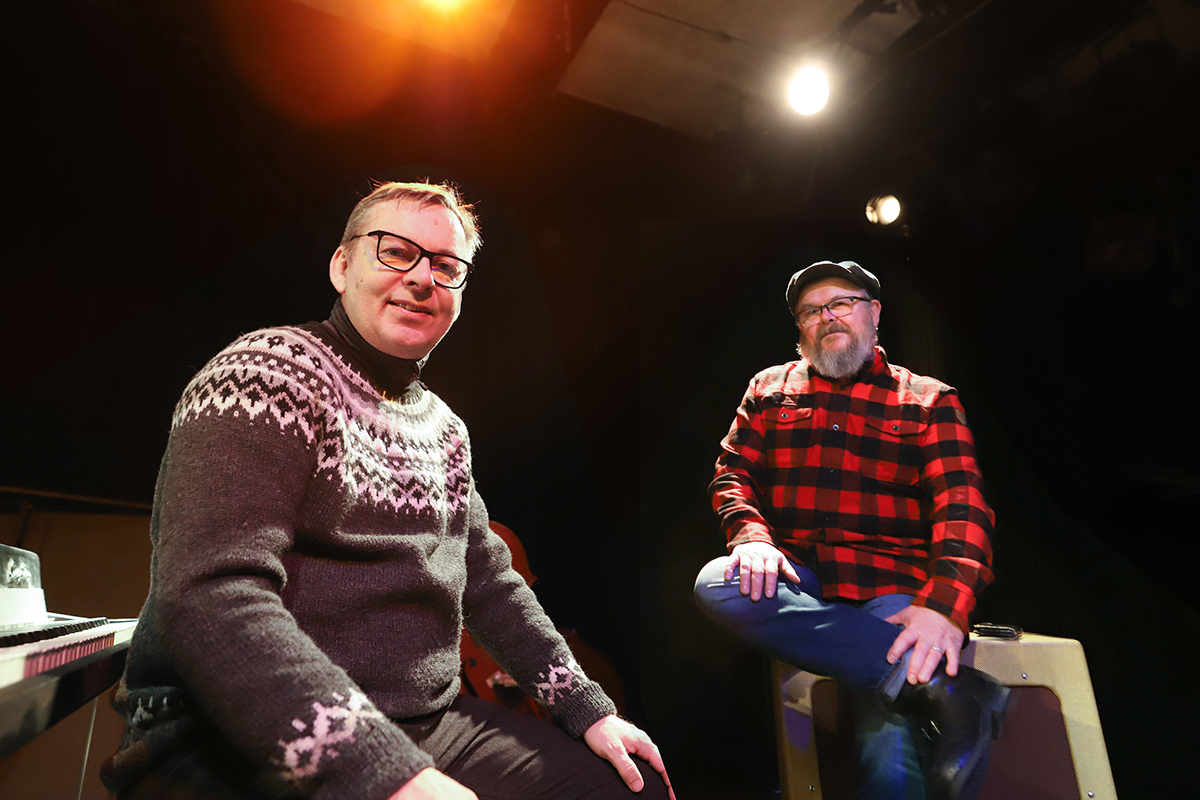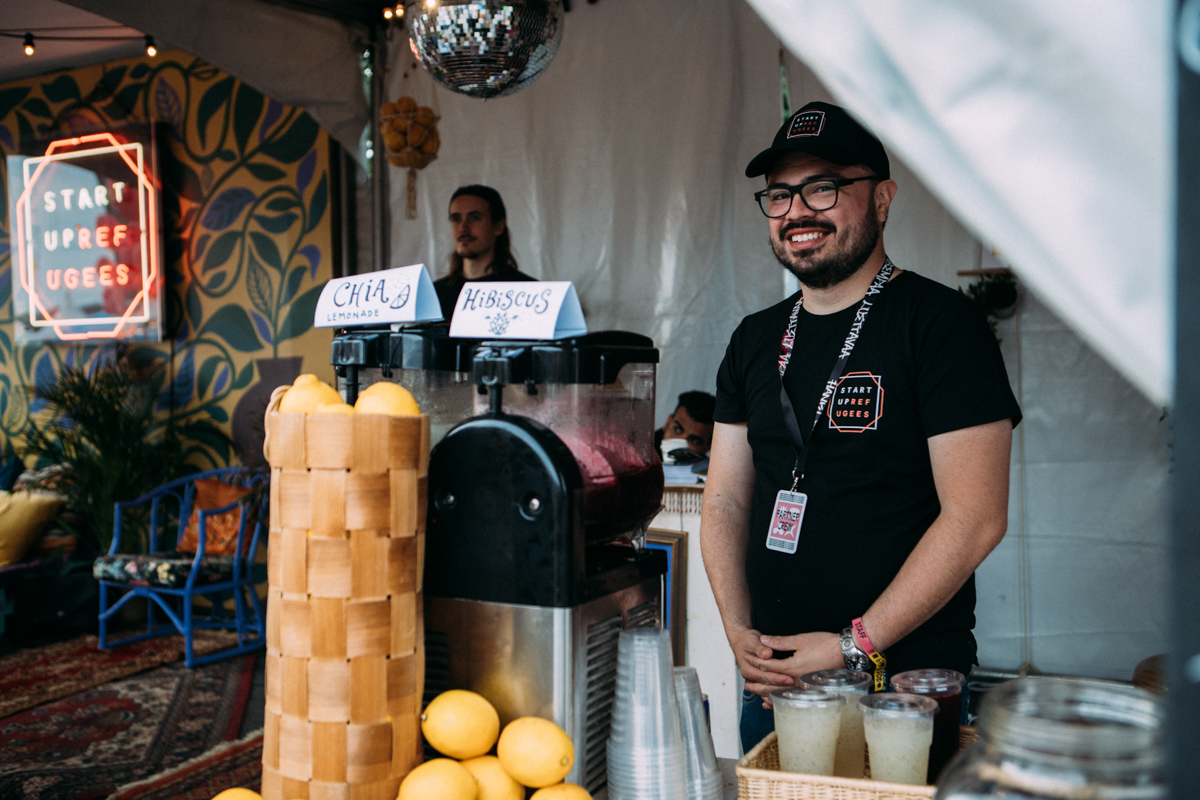My Oulu: Culture is made sustainably at Kokardiklubi

Kari Kuivamäki (on the left) and Raimo Ahlroos will travel to Gothenburg this May to meet the participants of the Sustainability in Culture project and learn more about sustainable practices in the cultural sector. Photo: Minna Mäki-Heikkilä
Performance venue and cultural space Kokardiklubi has been built mainly using recycled materials. The circumstances have encouraged the team to act sustainably.
“As a non-profit association, we do not have a lot of money to spend. That is why we have utilised recycled materials. It also suits the environment of the military barracks full of history. Along the way, we have noticed the value of sustainable development,” says Raimo Ahlroos, the fund manager of Kokardiklubi.
The stage structure at the venue – that used to be the cinema of the barracks – previously served as a choir stage at Madetojan sali concert hall. In addition, the renovators have purchased material from Oulu Theatre at a low cost.
“We have also received surplus materials from construction companies. A demolition company provided us with items such as doors and building systems at an affordable price.”
Learning from international collaboration
Sustainable development includes environmental, social, cultural, and economic aspects.
Besides environmental sustainability, social sustainability is being considered at Kokardiklubi. Among other things, rehabilitative work activities have been organised there, and equipment needed in event production, such as PA systems and tents, are being lent out to associations and societies.
Thanks to their sustainability skills, the Kokardiklubi team was selected to join the Sustainability in Culture project in which the City of Oulu Events Services participates this year. The project aims at sharing good practices for sustainable development in the cultural sector and building an international cooperation network. Together the partners examine the role of culture in a green and sustainable agenda.
“I am looking forward to learning from the other participants. And maybe someone will get inspired by our actions,” says Raimo Ahlroos.
Cultural sector has an impact on society in general
EU Advisor Julie Sand Jørgensen from the Central Denmark EU Office is the leader of the Sustainability in Culture project. She points out that the green agenda for the cultural sector includes more than waste sorting, energy renovation of buildings, preferring train travel over air travel or tap water over water in plastic bottles, and other factual initiatives that can be shown in numbers in an Excel sheet.
“The cultural sector needs to pursue its own green agenda by defining what sustainability means to it. We need a bottom-up approach to examine what effect and influence the cultural sector can have on a society that wants to be sustainable. We aim to find out the unique role that culture can play in a sustainable and green agenda.”
Sustainability in Culture – The unique role of culture in a green and sustainable agenda
– The project runs from December 2021 to December 2022.
– The project is funded by the Nordic Culture Fund and led by the Central Denmark EU Office in Brussels.
– The Danish partners are the cultural team in the Central Denmark Region, Aarhus-based theatre Svalegangen and theatre and residence centre Secret Hotel North of Aarhus.
– The Swedish partners are Västra Götaland Region and Nordiska Akvarellmuseet.
– The Finnish partners are the City of Oulu Events Services and Kokardiklubi.
–

